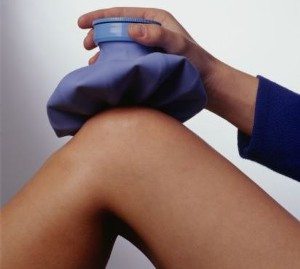Injured? Follow These Tips!
If you have suffered from an injury, you may find yourself struggling to find the motivation to get back into your workout routine. You may have fears about whether or not your injury is healed to the point where it can support your workout, or you may be paranoid that re-injury could occur. According to the Treadmill Review Guru, it’s estimated that 40-50% of runners are injured each year, in some way or another. So if you had the misfortune to sustain an injury, how do you bounce back from it? Here are a few of the tips that I have learned over the years (and yes, I have sustained many injuries!)If exercising with your injury causes any pain (beyond normal soreness), do not continue with the workout. When your body is in pain, it is trying to tell you something, and you should never ignore those signals! If you don’t pay attention to your body, you could make your injuries much worse!
 If you are recovering from an injury to a specific area of your body, look for ways to work out the areas that are unaffected. For example, if your knee injury is preventing your usual treadmill run, then look into doing some type of arm workout that won’t bother your knee at all, and you will be able to stick to a regular exercise routine!
If you are recovering from an injury to a specific area of your body, look for ways to work out the areas that are unaffected. For example, if your knee injury is preventing your usual treadmill run, then look into doing some type of arm workout that won’t bother your knee at all, and you will be able to stick to a regular exercise routine!
Heat and ice can be helpful tools in the healing process. Heat speeds up your bodily responses, while ice slows them down. So if you are injured so that there is a lot of swelling, apply ice to the area to slow the swelling. If you have a strained muscle, or something similar, apply heat to encourage fast healing.
Make sure that you hydrate enough while exercising. If you don’t stay hydrated, you are more likely to sustain injuries due to heat and fatigue. After you are injured, it is very important to stay hydrated so that your blood has no trouble pumping to the affected areas. Blood cells are responsible for a lot of the healing process, so make sure that your liquid intake is high!
When in doubt about any injury, make sure to visit a doctor. A doctor can help to diagnose the problem, if you aren’t sure exactly what’s wrong, and he can also suggest different options for recovery. If you are recovering from surgery, here are some tips specifically tailored to staying healthy after surgery!
